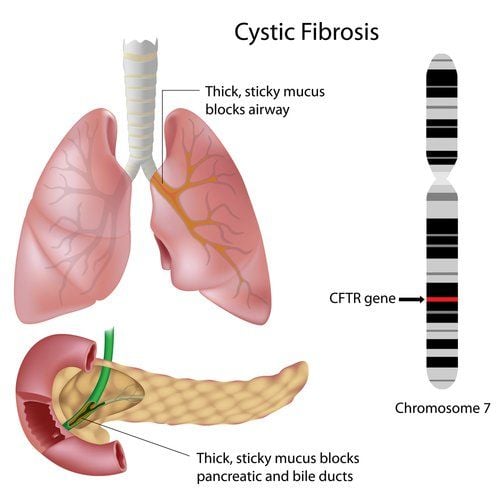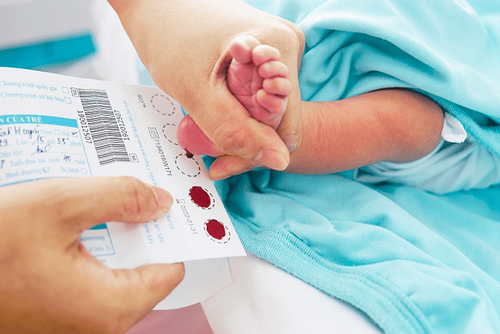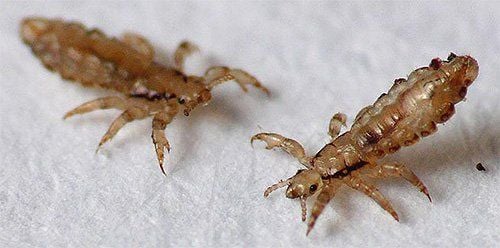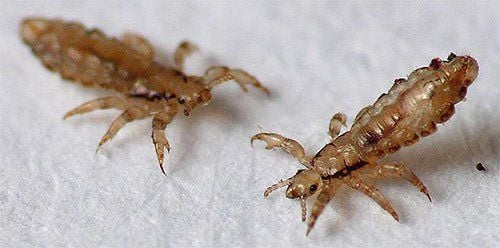This is an automatically translated article.
Cystic fibrosis occurs when a child receives an abnormal gene that causes the disease from his or her parents. This is a lifelong disease, and causes serious digestive and respiratory problems and shortens the life of the sufferer. However, despite the physical problems, many patients with cystic fibrosis are able to lead a full life.
1. What is cystic fibrosis?
Cystic fibrosis is an inherited disease that can be life-threatening. Children with cystic fibrosis have a faulty gene that affects the movement of sodium chloride, making mucus and digestive juices thick and sticky. Thick mucus can clog the lungs, make it difficult for a child to breathe, cause lung infections and eventually cause serious lung damage. Thick digestive juices make it impossible for pancreatic enzymes to get to the small intestine to break down and absorb nutrients from food. As a result, children may also experience digestive and growth problems.
Xơ nang là một bệnh di truyền có thể đe dọa đến tính mạng
2. What are the signs and symptoms of cystic fibrosis in infants?
About 15% to 20% of babies are born with meconium cystic fibrosis, which means their small intestine is blocked. During the first bowel movement, the baby's stool will be green. Baby meconium can also be caused by a large bowel obstruction, in which case the baby won't have a bowel movement for a day or two after birth.
Some babies have cystic fibrosis but remain completely normal until they develop breathing problems or have difficulty gaining weight during the first four to six weeks. Poor growth is one of the first signs of cystic fibrosis in children. In addition, young parents may also notice signs such as persistent cough and wheezing in children with cystic fibrosis. However, coughing and wheezing are not the only signs for a child with this condition, and the child may also be suffering from viral bronchiolitis, asthma, pneumonia or even a smoky environment. .
In some cases, the condition does not become apparent until the child has repeated lung infections or the child has severe growth problems. If you notice your child has any of these symptoms, talk to your doctor about early diagnosis and intervention.
Cystic fibrosis cannot be cured, but now there are new treatments that can not only prolong a child's life, but can also help a child lead a more normal life. The earlier cystic fibrosis in children is diagnosed, the greater the likelihood that these therapies will be successful.

Bệnh xơ nang ở trẻ sơ sinh
3. Probability of cystic fibrosis in children
The probability of developing cystic fibrosis in a child is 1/3,000 for a Caucasian child, 1/9,000 if the child is Hispanic, 1/11,000 if the child is Native American, 1/15,000 if the child is a Native American. African-American and 1/30,000 if the child is Asian-American.
Newborns develop cystic fibrosis when they inherit one defective gene from their mother and another from their father. More than 10 million Americans carry the cystic fibrosis gene, but most don't know it. Children with cystic fibrosis are usually diagnosed before the age of 2, but about 10% of cases are not detected until adulthood.
4. How is cystic fibrosis diagnosed in children?
Newborns in the United States and in many countries around the world are screened for cystic fibrosis after birth. The definitive test is done by taking a small blood smear from the child's heel and testing it to determine the amount of protein, the amount of protein will tend to be higher in children with cystic fibrosis. If the protein level is too high, further testing will be done to look for common mutations that can cause cystic fibrosis.
If a child has any suspicion of cystic fibrosis based on symptoms, newborn screening test results, or family history, the doctor will perform a sweat test on the child to determine whether the child is sick or not. The sweat test is a quick and painless test. Your doctor will use the medication pilocarpine to stimulate sweating in a spot on your arm. A piece of filter paper will then be placed on the area to absorb the sweat and check the sodium and chloride content in the child's sweat. Children with cystic fibrosis often have higher than normal levels of sodium and chloride. Learn about your family history of cystic fibrosis, and other tests, such as a chest X-ray, genetic testing of blood or saliva, may also be used to diagnose the disease.
Genetic testing can also determine whether a couple who are planning a pregnancy are at risk of having a child with cystic fibrosis. Children develop cystic fibrosis when both parents must be carriers of the cystic fibrosis gene. Most obstetric centers offer these tests to expectant parents. If the test results are positive, they will be referred to a genetic counselor. There are several thousand DNA mutations that can cause cystic fibrosis but most of these tests only check for 30 or 40 cases of the most common genes. So sometimes results show that you don't have the gene that can cause cystic fibrosis, but in fact do, because it hasn't been detected.

Phát hiện bệnh xơ nang ở trẻ em thông qua xét nghiệm lấy máu gót chân
5. How is cystic fibrosis in infants treated?
Infants with cystic fibrosis and children with cystic fibrosis require ongoing medical care by specialized centers with a team of doctors, nurses and other people with expertise in the disease. Because the symptoms of the disease are not the same between children, even if the children are siblings with the same genetic defect. Symptoms often come and go, and they can be mild or unpredictable.
Most young children with cystic fibrosis can be treated on an outpatient basis, but they need to be seen regularly to make sure the disease is being treated properly. During each visit, your child will have a sputum test to identify the bacteria causing the lung infection. In the event of a flare-up of symptoms, the child must be hospitalized to receive intravenous antibiotics.
If your child has cystic fibrosis, you should give him routine immunizations against common illnesses like Hib and pertussis, as well as a flu shot every year when he's six months old.
Most children with cystic fibrosis are also prescribed medications such as antibiotics to treat infections, medications to help break up mucus in the lungs, and medications to reduce inflammation. Each child will react differently to different combinations of physical therapies, medications, and it is the responsibility of the doctors and parents to find the combination that works best for each child. Now, scientists are also working on other treatment options including gene therapy to replace disease-causing genes, drugs that help move salt in and out of cells properly, and new drugs to prevent and treat infections.
To loosen mucus in your baby's lungs, your doctor will probably show you how to pat your baby's chest with your hands. Your child will probably need to do this a few times per day for about 30 minutes at a time. Other electrical devices such as chest clamps and vibrating bras can also be used to loosen mucus in a child's lungs.
Because cystic fibrosis often affects the pancreas, children also need digestive support. Without easy access to pancreatic enzymes, the small intestine will have difficulty breaking down food, especially fats, leaving children undernourished. Your baby's doctor will probably give your baby a pancreatic enzyme supplement with each meal to help her body absorb food. You should also encourage your child to eat as often as possible and give him any nutritional supplements his doctor recommends. Providing the right nutrition is very important for a child to be healthy. Being healthy and well-nourished will contribute positively to the success of therapies for children with cystic fibrosis.
Infants with cystic fibrosis can develop to live almost as normal lives as other babies. The outlook for life expectancy for children with cystic fibrosis is increasingly improving. Several decades ago, most infants with cystic fibrosis died in their teens. Today, the life expectancy of a child born with cystic fibrosis is about 37 years.
When a child shows abnormal signs of health, parents can take the child to Vinmec Health system for timely examination and treatment.
As a key area of Vinmec Health System, Pediatrics Department - Vinmec International General Hospital always brings satisfaction to customers and is highly appreciated by industry experts thanks to the following advantages:
gathers a team of leading doctors and doctors in Pediatrics: including leading experts, with high professional qualifications (professors, associate professors, doctorates, masters), experienced, having worked in different hospitals. big hospitals like Bach Mai, 108.. The doctors are all well-trained, professional, have a heart - reach, understand young psychology. In addition to domestic pediatric specialists, the Department of Pediatrics also has the participation of foreign experts (Japan, Singapore, Australia, USA) who are always pioneers in applying the latest and most effective treatment regimens. . Comprehensive services: In the field of Pediatrics, Vinmec provides a series of continuous medical examination and treatment services from Newborn to Pediatric and Vaccine,... according to international standards to help parents take care of their baby's health from birth to childhood. from birth to adulthood Specialized techniques: Vinmec has successfully deployed many specialized techniques to make the treatment of difficult diseases in Pediatrics more effective: neurosurgery - skull surgery, stem cell transplantation. blood in cancer treatment. Professional care: In addition to understanding children's psychology, Vinmec also pays special attention to the children's play space, helping them to have fun and get used to the hospital's environment, cooperate in treatment, improve the efficiency of medical examination and treatment.
Please dial HOTLINE for more information or register for an appointment HERE. Download MyVinmec app to make appointments faster and to manage your bookings easily.
Reference source: babycenter.com



![[Vinmec - Q&A with experts] Number 02: Children's health in hot season (Part 3)](/static/uploads/small_20190723_083510_991723_Tre_em_max_1800x1800_jpg_64b0210846.jpg)
![[Vinmec - Q&A with experts] Number 02: Children's health in hot season (Part 1)](/static/uploads/small_20190723_082829_863235_Banner_FB_1200x628_max_1800x1800_png_982bf67b1c.png)
![[Vinmec - Q&A with experts] Number 02: Children's health in hot season (Part 2)](/static/uploads/20190724_082648_029405_tre_em_max_1800x1800_jpg_6420fc1d62.jpg)






